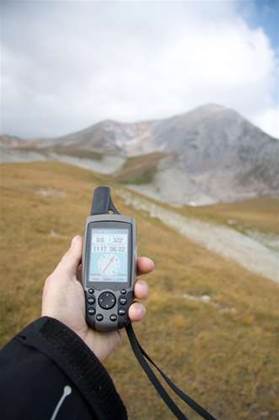Researchers from RMIT are borrowing the Bureau of Meteorology's supercomputer capacity at NCI to crunch through calculations they hope will predict how 'disturbances' in the earth's atmosphere could be putting GPS off track.

Brett Carter, a research fellow in space weather and physics, is leading a team studying how the layer of charged particles surrounding the earth, known as the 'ionosphere', affects GPS readings - and how this knowledge could make the technology more accurate.
“The earth is surround by shell of charged particles we call the ionosphere. Any disturbances that start at sun and arrive at the Earth through the solar wind and the magnetosphere affects the plasma in the upper atmosphere,” Carter said.
"Because it’s a medium of charged particles, when you pass radio waves through it, radio waves are affected by electrons inside the plasma."
These pockets of different atmospheric density slow down radio waves as they pass through between orbiting satellites and GPS-enabled devices on the ground.
“If there’s a very strong ionosphere – a lot of electrons – the ray will slow down more than if there’s no ionosphere - which happens at night time," Carter explained.
These disturbances – also known as GPS interpolation events or plasma bubbles – happen almost every day somewhere around the world. In areas close to the equator, from June to September, there is around a 50 percent chance of a disturbance happening on any given day.
This can alter GPS location calculations which are based on the assumption that all radio waves are travelling at the same speed, he said.
"This delay in the ray can translate into an error of distance in the order of metres.”
Work on the research project, which is set to run for three years, is now getting underway thanks to a federal government grant awarded in May.
It aims to eventually produce space weather forecasts that could be used by software and devices that correct GPS readings based on interference in the ionosphere.
The researchers will attempt to generate forecasts based on data gathered from GPS ground stations, along with the US COSMIC-2 low Earth orbit satellite constellation, which is set to launch over the next 12 months.
The data will be crunched using the BoM’s high performance compute clusters at NCI.
"We’re trying to better understand environment up there, using GPS both as sensor and also as an application that’s affected," said Carter.


.png&h=140&w=231&c=1&s=0)

_(20).jpg&h=140&w=231&c=1&s=0)




_(26).jpg&w=100&c=1&s=0)

 iTnews Executive Retreat - Security Leaders Edition
iTnews Executive Retreat - Security Leaders Edition












_(1).jpg&h=140&w=231&c=1&s=0)



